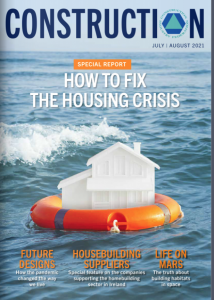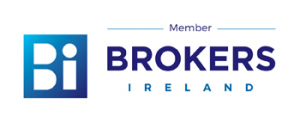In this month’s Construction Magazine, Susan considers the year to date from an investment perspective.
Looking at 2021 so far, it is clear that as we continue to navigate through the effects of the Covid-19 pandemic, one thing is certain and that is that nothing is certain. We had started to turn the corner on the pandemic, with a large number of the population fully vaccinated at home and rollout to younger people well underway. However, the poor uptake in some developed countries and the lack of access to the vaccine in others has resulted in as many as four new variants which is a cause for concern according to the WHO and we are seeing numbers increase again here with the arrival of the Delta variant. Whether that will result in further lockdowns is uncertain at this time.
The stock market
 In 2020, we saw markets suffer their sharpest losses and the ‘V’ shaped recovery meant that much of those losses were recovered before the year end. In 2021, the average medium risk, multiasset or managed fund for example, (from January 1, 2021 to June 30, 2021), have seen returns between six and nine per cent. We are halfway through the year and the US stock market has been full steam ahead so far. In their mid-year reviews, there is still very much a positive sentiment from investment managers. While it is expected that the pace of gains may slow down, the outlook remains positive for the rest of 2021 and beyond. Despite positive sentiment, it is still crucial that, as an investor you do the following:
In 2020, we saw markets suffer their sharpest losses and the ‘V’ shaped recovery meant that much of those losses were recovered before the year end. In 2021, the average medium risk, multiasset or managed fund for example, (from January 1, 2021 to June 30, 2021), have seen returns between six and nine per cent. We are halfway through the year and the US stock market has been full steam ahead so far. In their mid-year reviews, there is still very much a positive sentiment from investment managers. While it is expected that the pace of gains may slow down, the outlook remains positive for the rest of 2021 and beyond. Despite positive sentiment, it is still crucial that, as an investor you do the following:
Define your investment goals
It is easier to invest when you have a clear goal that takes your investment time frame into account. For example, if it is your retirement fund, your primary goal is to accumulate enough savings to create the income you need in retirement. In this regard, your investment timeframe will be determined by the number of years left until you plan to retire and whether you plan to purchase an annuity or invest in an Approved Retirement Fund.
Define your investment risk profile
Even if your time frame is sufficient to warrant a high or medium-high portfolio, you need to make sure that you are comfortable with the short-term ups and downs you will likely encounter. If watching your fund balance fluctuate is too nerve-racking for you, think about a portfolio that feels right and set realistic expectations. Conversely, if you are at ease with a high risk portfolio, but you are a year away from purchasing an annuity, you might want to reconsider your investment strategy or your post retirement choice.
Diversification is key
As an investor, you may be invested in a handful of stocks or you may be invested in a fund which holds a certain number of stocks. One way to help protect yourself from market downturns is to be invested in various asset classes. Using the retirement saver as an example, most schemes will offer a range of investment funds. Consider investing in a fund that at a minimum, spreads your investment across the three main asset classes – stocks, bonds, and cash. Be aware too, that a good provider (nowadays), should have funds offering even broader diversification by adding property and other alternative assets into the mix. Diversification won’t ensure a profit or guarantee against loss, but it will ensure you are not overly exposed to one specific risk and can reduce potential downside of a volatile investment market.
Here to help you navigate your way to financial security.
The Milestone Advisory team are qualified financial services consultants. We specialise in helping professionals in the construction sector and related industries. Our team will work with you to review your finances, explaining your options in clear English.
No jargon – just the facts.
For further information please contact Susan O’Mara via email or phone: (01) 406 8020.
Milestone Advisory DAC t/a Milestone Advisory is regulated by the Central Bank of Ireland.
Warning: The value of your investment may go down as well as up.
If you are concerned about the performance of your fund or investment, you should contact your financial advisor.





